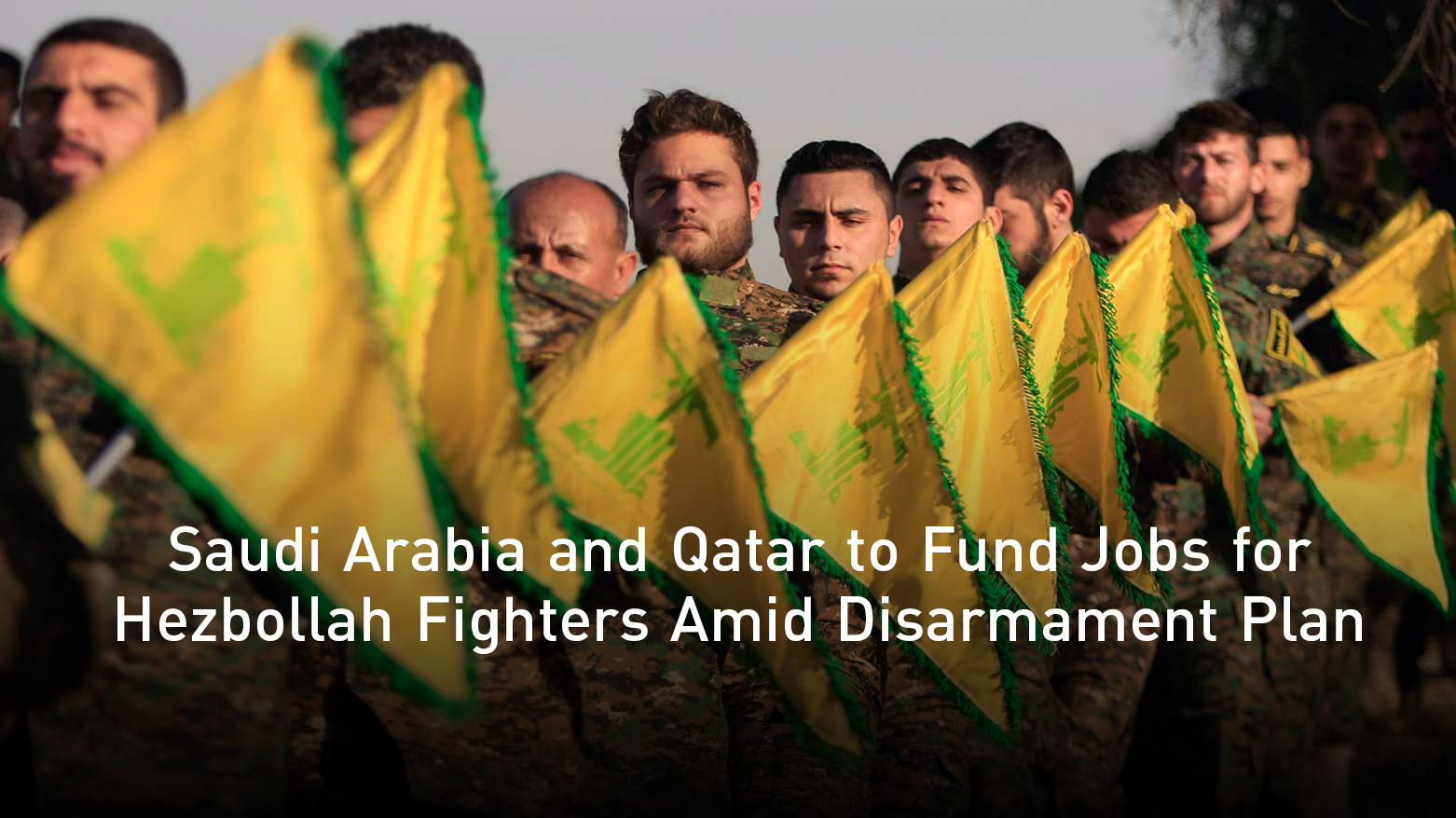Saudi Arabia and Qatar to Fund Jobs for Hezbollah Fighters Amid Disarmament Plan
“We have 40,000 people who have been paid by Iran to fight. What are you gonna do with them? Take their weapon and say ‘by the way, good luck planting olive trees? It can’t happen. We have to help them,” Barrack said.

ERBIL (Kurdistan24) — Saudi Arabia and Qatar are prepared to invest in an economic zone in southern Lebanon, near the border with Israel, aimed at providing jobs for Hezbollah members and their supporters once they lay down their weapons, U.S. Middle East envoy Tom Barrack said Tuesday.
Barrack made the remarks in Beirut following visits to Israel and Syria, where he met with officials to discuss the ongoing situation in Lebanon after the government’s recent decision to disarm Hezbollah by the end of the year. Hezbollah’s leader has rejected the plan, vowing to retain the group’s arsenal.
Hezbollah, Iran, and a Gulf economic push: Lebanon’s upcoming plan could shift the balance in Beirut’s security and politics!
— Kurdistan 24 English (@K24English) August 27, 2025
US envoy Tom Barrack on Lebanon’s next move: "Lebanese Government set to unveil a Hezbollah disarmament plan by August 31st, while Gulf-backed economic… pic.twitter.com/jIwO29QOyu
On Monday, Israeli Prime Minister Benjamin Netanyahu said Israeli forces could begin withdrawing from southern Lebanon following the Lebanese government’s “momentous decision” to disarm Hezbollah.
The U.S.-backed Lebanese army is preparing a disarmament plan for Hezbollah that is expected to be ready by the end of August. The Lebanese government is scheduled to review and potentially approve the plan during a meeting on September 2.
Barrack emphasized the need for economic support to accompany the disarmament process. “We have to have money coming into the system. The money will come from the Gulf,” he said after meeting President Michel Aoun. “Qatar and Saudi Arabia are partners and are willing to do that for the south if we’re asking a portion of the Lebanese community to give up their livelihood.”
He highlighted the challenge of reintegrating Hezbollah members who have been funded by Iran for decades. “We have 40,000 people who have been paid by Iran to fight. What are you gonna do with them? Take their weapon and say ‘by the way, good luck planting olive trees’? It can’t happen. We have to help them,” Barrack said.
Barrack added that the U.S., the Gulf countries, and Lebanon plan to work together to create an economic forum that would provide sustainable livelihoods for former fighters.
Asked why the U.S. does not negotiate directly with Iran on Hezbollah, Barrack responded sharply: “You think that’s not happening? Goodbye,” before abruptly ending the press conference.
Regarding the United Nations Interim Force in Lebanon (UNIFIL), which has been deployed in southern Lebanon since Israel’s 1978 invasion, Barrack said the U.S. would rather fund the Lebanese army than UNIFIL. He also noted that the U.S. supports extending UNIFIL’s mandate for one year only during this week’s vote at the United Nations in New York.
With UNIFIL’s mandate expiring Sunday, the Security Council delays a renewal vote amid US-Israel calls for a one-year extension and gradual withdrawal, clashing with European efforts to maintain the Lebanon peacekeeping force.
